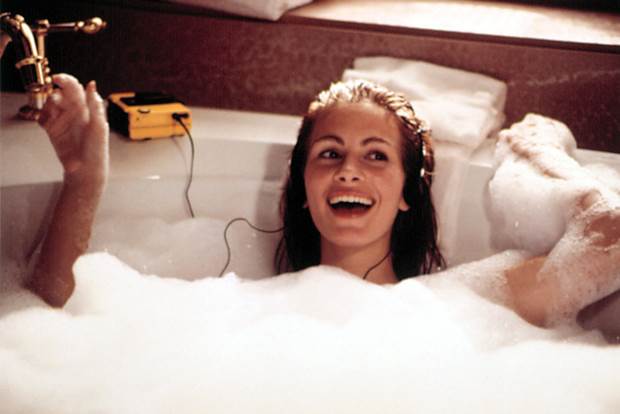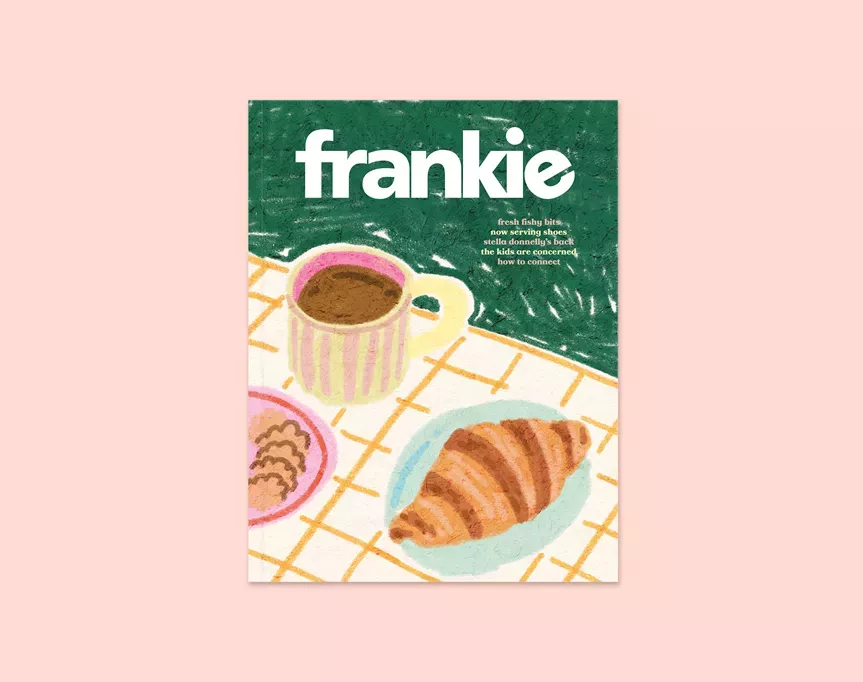five films to watch when you're in need of a makeover
If you feel like celebrating the achievement of identity through new haircuts and fancy clothes, then take a look at these five makeover movies.
Makeover movies! To be honest, I’m not sure how to feel about them sometimes.
There’s usually a moment in every makeover movie when we’re asked to recognise our hero (or, heroine, actually), after they have been transformed, or made over, or made better. These are usually big, “OH WOW!” moments where we marvel about improved appearances, and how our hero or heroine finally looks like the best and most appealing version of themselves, or like the person they were always meant to be.
Sometimes these moments are marvellous and exciting and thrilling – Charlotte’s transformation in Now, Voyager (usually described as the first makeover movie) is a wonderful statement of her newfound independence and confidence as a woman, after she suffered a nervous breakdown. At other times, these moments can make you feel a bit weird inside – see, for example, all 110 minutes of Grease.
Let’s try to focus on the bright side, though. If you feel like celebrating the achievement of identity through new haircuts and fancy clothes (and sometimes, to be honest, everybody just kind of feels like celebrating new haircuts and fancy clothes), then take a look at the following five makeover movies:
My Fair Lady
In ancient myth, Pygmalion was a Cypriot sculptor who did not give one hoot about women until he carved a female form out of ivory and fell in love with his creation. Taking pity on the lovesick sculptor, the goddess Aphrodite brought the statue to life and then Pygmalion married her. As in the statue! Good-o!
This was the story that inspired George Bernard Shaw to write the play Pygmalion, which then became the stage musical My Fair Lady by Alan Jay Lerner and Frederick Lowe, which then became the Hollywood musical My Fair Lady by George Cukor. The transformation of Eliza Doolittle from flower-selling gutter imp into elegant, classy lady who can speak proper is accompanied by amazing hats and some tip-top musical numbers (“Wouldn’t it be loverly?” is extremely special, please agree), but there’s also a strong sense of sadness that underpins it all. Eliza knows that she’s lost some part of herself in becoming an apparently fancy, blue-blooded lady and an object to be coveted: “What am I fit for?” she cries after Higgins celebrates his “glorious victory”. “What have you left me fit for? Where am I to go? What am I to do and what's to become of me?”
Pretty Woman
Pretty Woman is basically Pygmalion/My Fair Lady all over again, but with less singing and approximately 10,000% more prostitutes. If you just replace “snobbish aristocrat-type” with “Richard Gere as incredibly wealthy, but soulless businessman-type” and “working-class girl” with “working girl”, then you’ve basically got the picture.
There are some wonderful things to recommend about Pretty Woman: Julia Roberts, in her star-making role, is super charismatic, spirited and compelling in her portrayal of Vivian. Héctor Elizondo, as hotel manager Barney Thompson, is a compassionate, warm and lovely screen presence (talking point: does the friendship between Barry and Vivian say something about the strong sense of loyalty felt between people who are treated badly by their social “superiors”?). And look, I can never think about Vivian’s revenge at the dress shop, after she transforms herself into a real fancy lady, without wanting to punch the air and smile forever. What a movie.
Gattaca
The makeover movie that takes a fella as its subject is a pretty uncommon beast, but thankfully, ladies and gents, that’s where Gattaca comes in.
Gattaca tells the story of an impostor, Vincent (Ethan Hawke), who assumes the identity of a genetically superior man, Jerome (Jude Law), in order to realise his dream of going into space. At the heart of Gattaca’s world is a strict distinction between two groups “Valids” and “Invalids” – or, those people whose genes were perfected by science before they were born, and those people whose genes were left “in God’s hands” (i.e. those people whose parents just did it in the back of a car). Vincent, an Invalid, combines his visible body with Jerome’s invisible cellular information and the two men co-operate to produce a single identity: Jerome Morrow, Navigator First Class, who works at the Gattaca Aerospace Corporation. In order to convincingly pass as Jerome (i.e. convincingly pass as the impossibly beautiful Jude Law), Vincent must undergo a complete makeover (including a painful leg-lengthening operation) and, through its obsession with fate, genes, surfaces, and identities, Gattaca asks some profound questions about what it means to be human in a world of dehumanising technologies and constant surveillance.
Now, Voyager
Now, Voyager might be one of the earliest examples of a makeover movie, but it is also one of the most enduring. 73 years after it was first released, the film’s tale of transformation, empowerment, independence and self-discovery is still completely breathtaking. Bette Davis! What a woman! The 1940s! What a terrible time to be alive!
The movie tells the story of Charlotte (Bette Davis), a woman who is completely dominated by her cruel, terrible, giant-jerkface of a mother. When Charlotte is institutionalised after suffering a mental breakdown (the film is remarkably sympathetic in its handling of mental illness), she discovers her self-confidence and self-worth, and eventually returns home as a new woman. This means a new wardrobe, of course, but is also means a powerful sense of independence and emotional (and romantic) autonomy. Charlotte, eventually, is brave enough to tell her mother she’s not afraid of her. It’s a profound and amazing moment, but, true to the conventions of Hollywood melodrama, it’s also no happy ending.
Strictly Ballroom
Strictly Ballroom is one of the first movies I remember seeing at the cinema when I was but a tiny sprog: the lights went out, the curtains went up and Paul Mercurio danced his shimmery, shiny pants into my tiny, pitter-patting heart.
There’s something so delightfully ‘Strayan about Strictly Ballroom, with its tale of fake tan, big personalities, big hair, Hills Hoists and sequinned ambition. Paul Mercurio plays a dancer called Scott Hastings, whose incredible talent doesn’t stop him from feeling constrained by the rules of ballroom dancing. When Scott loses a competition because he decided to dance his own moves, his partner Liz (Gia Carides, never better) leaves him. Scott then finds a new and unlikely partner in an amateur named Fran (Tara Morice), who is neither glamorous nor image conscious, but thinks Scott’s dancing is just “wonderful”. As the two rehearse for the Pan-Pacific Dancing Championships, Fran grows in confidence and becomes more self-assured, and eventually becomes a sleek and stunning dancer who can take on the best in the world.












.jpg&q=80&w=316&c=1&s=1)













.jpg&q=80&w=316&c=1&s=1)










